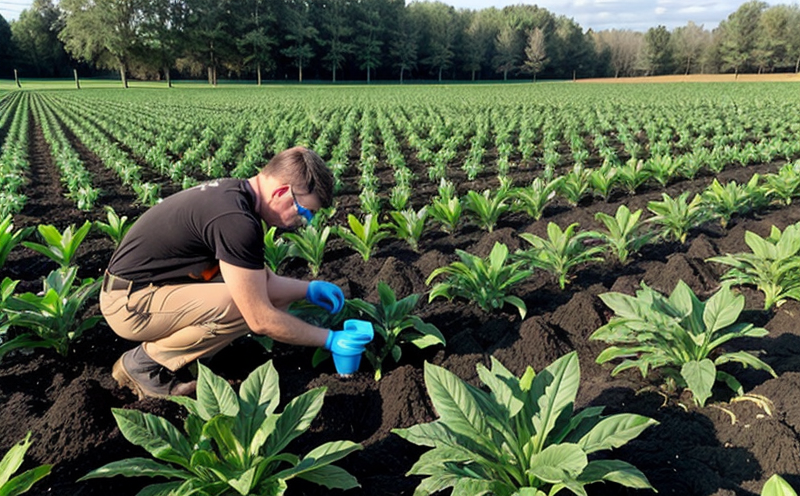Water-Soluble Phosphate Testing in Fertilizers
The testing of water-soluble phosphate content is an essential quality control measure for fertilizers, particularly those designed to enhance plant growth by providing necessary nutrients. This test ensures that the fertilizer meets specified standards and performs as expected under real-world conditions.
Water-soluble phosphate is a key component in many fertilizers because it can be readily absorbed by plants, promoting healthy growth. The solubility of phosphate in water makes it particularly effective for immediate use by plants. However, measuring the exact amount that is water-soluble helps in understanding how much of the applied fertilizer will be immediately available to the plant.
The testing procedure involves extracting the water-soluble portion from a sample of the fertilizer and then determining its concentration using analytical methods like atomic absorption spectroscopy (AAS) or inductively coupled plasma optical emission spectrometry (ICP-OES). This allows for accurate quantification, which is crucial for compliance with international standards such as ISO 17266.
Understanding the water-soluble phosphate content helps in optimizing crop yields and reducing environmental impact by minimizing unnecessary runoff. The test results are used to adjust the formulation of fertilizers, ensuring that they meet regulatory requirements and customer expectations. This service is particularly valuable for manufacturers looking to improve product quality and efficiency.
| Industry Sector | Application |
|---|---|
| Agriculture & Forestry | Quality control for phosphate-based fertilizers |
| R&D Engineering | Formulation optimization of water-soluble fertilizers |
| Compliance Management | Ensuring regulatory compliance with international standards |
The importance of accurate testing cannot be overstated. It ensures that the fertilizer meets the expected performance levels and helps in maintaining a balance between nutrient availability and environmental protection.
Industry Applications
- Agricultural R&D for improved fertilizer formulations
- Farmers ensuring optimal use of water-soluble phosphate fertilizers
- Environmental agencies monitoring the impact of agricultural runoff
- Compliance departments verifying adherence to international standards
The testing service supports various stakeholders in achieving their goals, from enhancing crop yields to reducing environmental risks. By providing accurate and reliable test results, we contribute to sustainable agriculture practices.
Why Choose This Test
- Ensures compliance with ISO standards (ISO 17266)
- Supports formulation optimization for enhanced plant nutrition
- Reduces environmental impact by minimizing nutrient runoff
- Aids in maintaining product quality and reputation
- Provides accurate data for regulatory compliance
- Saves time and resources by identifying issues early in the development process
- Promotes sustainable agricultural practices
- Ensures consistent performance across batches of fertilizers
The benefits extend beyond mere testing; it aids in making informed decisions that lead to better crop health, higher yields, and a more responsible approach to resource management.
International Acceptance and Recognition
The water-soluble phosphate test is widely recognized internationally for its role in ensuring the quality of fertilizers. This service aligns with global standards such as ISO 17266, which specifies methods for determining available phosphorus in soil and plant tissue.
International acceptance and recognition are crucial in today's interconnected market. Compliance with these standards not only ensures that products meet the required quality but also opens doors to markets across different countries. By adhering to such internationally recognized protocols, we contribute to a global standard of excellence in agricultural testing.





